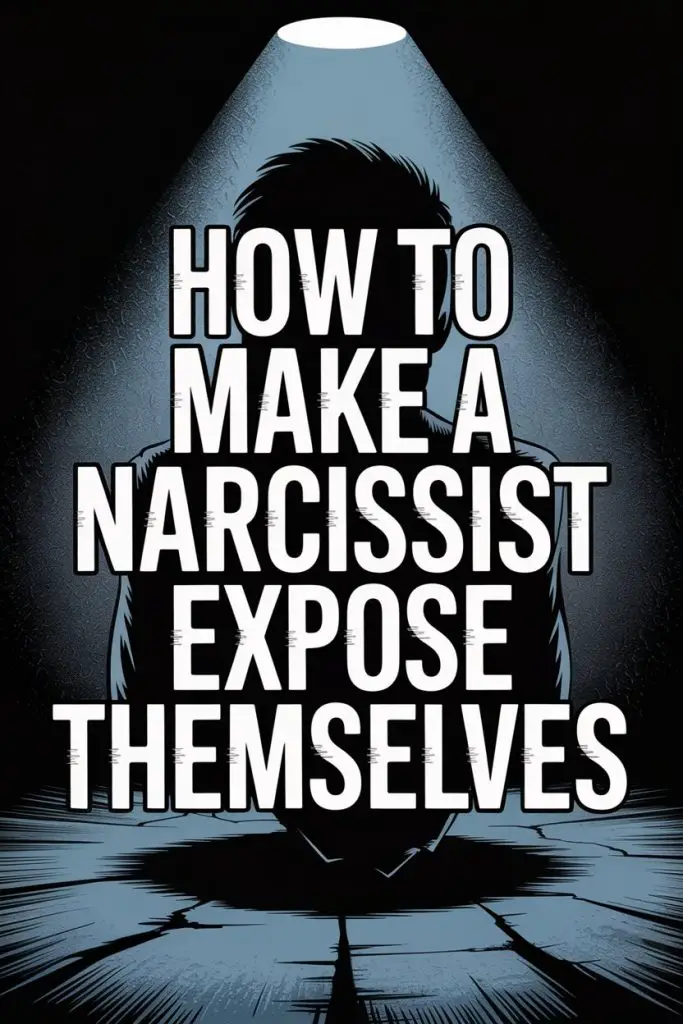Ever tried to out-maneuver a narcissist? It’s like arm wrestling with an octopus: slippery, confusing, and you’re pretty sure someone’s cheating.
Narcissists are masters at hiding behind a mask of charm, self-confidence, and “it’s never my fault.” But what if you could get that mask to slip—just enough to reveal what’s really going on beneath the glossy exterior?
Spoiler: You can. And you won’t even need a lie detector test or a degree in forensic psychology.
Spotting the Cracks in the Mask
A narcissist’s entire act depends on keeping up appearances. Think peacock feathers—shiny, impressive, and 100% for show. Challenge that and things start to wobble.
One of the fastest ways to spot what’s lurking beneath is to gently, almost innocently, question something they’ve said or done. Not in an attack-dog way, but with just enough curiosity to make them twitch.
Narcissists are allergic to criticism, and even a teaspoon of skepticism can bring out their defensiveness.
For example: “You mentioned you closed that big deal at work—how did that come together?” Watch their eyes. If they bristle, over-explain, or turn the blame on someone else, you’re in business. They can’t stand not being believed.
Praise with a Twist
Everyone loves a good compliment, right? Narcissists, though, live for it. Feed them praise, but sneak in a gentle “but”—and watch the meltdown.
Try something like: “You’re brilliant at making presentations. I wonder how you’d handle it if someone challenged your ideas in front of everyone?” The second half of that sentence is like garlic to a vampire.
If they huff, puff, or start spinning wild tales about how no one would ever dare challenge them, that’s the mask slipping.
Set Boundaries—and Actually Mean It
Narcissists expect the world to revolve around them, which means boundaries are their natural enemy. Set one—any one—and you’ll learn a lot.
Say you decide you’re unavailable for their endless 2 a.m. monologues about their boss. When you calmly explain you need sleep, don’t be surprised if you get the silent treatment, guilt trips, or a full-on guilt-powered monologue about how you’re selfish.
Their reaction to your “no” tells you everything. A healthy person might grumble but accept it. A narcissist will do mental gymnastics to prove you’re the villain.
Ask for Empathy, Not Sympathy
Most narcissists can fake sympathy (especially when it makes them look good), but genuine empathy is tougher for them than assembling IKEA furniture—without instructions.
Test this out: share a small but real problem and see how they react. “I’ve had such a stressful day at work—can you imagine how that feels?”
If their response is to turn the conversation back to their own hardships, or to dismiss your feelings entirely, you’ve struck gold.
Empathy is kryptonite for a narcissist. If they can’t muster it, it’ll show—fast.
Stick to the Facts, Buh-Bye to Drama
Narcissists thrive on confusion, circular arguments, and drama worthy of a late-night soap opera. Refuse to engage. When they try to gaslight or rewrite history, respond with clear, boring facts.
Narcissist: “You never appreciate anything I do!”
You: “Last night, I thanked you for picking up dinner.”
Do this often enough, and the mood swings get more obvious. When the emotional fireworks don’t work, the narcissist’s frustration shines through.
Watch Their Reaction to Someone Else’s Success
Narcissists want to be the main character in every story. Bring up another person’s achievement and just observe.
“Oh, did you hear that Sarah got a promotion? She’s worked so hard for it!”
If the narcissist immediately trashes Sarah, downplays her efforts, or shifts the spotlight back to themselves (“Well, they always liked her more than me”), you’re seeing textbook envy and entitlement.
Don’t Play the Game
The biggest trick up a narcissist’s sleeve is baiting you into drama. Don’t take the bait. Stay calm, factual, and as emotionally neutral as a goldfish.
Refusing to argue or escalate starves them of attention. That’s when the mask slips the most—because frustration pushes them to drop the act and go for broke.
Subtle Traps for the Unwary
Bring up something they said last week, and ask for clarification. If their story keeps changing, you’re witnessing their loose grip on truth.
“Oh, I thought you said you were with Mike on Friday, but now you’re saying you were at home?”
If they get angry or accuse you of “not listening,” keep your cool. The more you shine a gentle light on inconsistencies, the more likely they are to trip themselves up.
The Group Test
Narcissists hate being exposed in front of others. Sometimes, their façade crumbles fastest in group settings—especially if someone else questions them or outshines them.
Next time you’re out with mutual friends, bring up a topic the narcissist loves to control or exaggerate and watch their reaction if someone else gently disagrees. Their need to dominate the conversation or shut down criticism becomes glaring.
Group settings also reveal how they treat “lower status” people versus those they want to impress. Watch for the switch—charm to condescension in two seconds flat.
Why Narcissists Expose Themselves
It’s tempting to think you’re playing 4D chess, but the truth is, most narcissists reveal themselves without much nudging. Their need for admiration, inability to handle criticism, and chronic lack of empathy can’t stay hidden forever.
The harder they try to control the narrative, the more likely they are to trip over their own contradictions.
All it usually takes is a dash of patience, a sprinkle of boundaries, and a willingness to stick to the truth, even when they’re performing verbal backflips.
What to Do When the Mask Slips
Spotting a narcissist’s mask slipping is one thing. Deciding what to do about it is another kettle of fish.
Start by deciding what you want from the interaction. Looking for closure? Setting firmer boundaries? Plotting your escape?
Once the narcissist shows their true colors, resist the urge to rationalize or explain away their behavior. Their patterns are real—and unlikely to change just because you caught them out.
Above all, remember: It’s not your job to fix, heal, or outwit a narcissist. Your job is to protect your sanity, your time, and your self-respect.
When They Go Nuclear
Exposing a narcissist (even if you do it by accident) can lead to fallout. Expect everything from sulking and blame-shifting to grand declarations of victimhood.
Don’t bother trying to “win” these arguments. Stick to your truth, and don’t let yourself be dragged back into their circus of blame and projection.
Your peace of mind is worth more than being right in a shouting match.
If things get too wild, there’s no shame in calling time on the relationship—or getting outside support if you need it.
Narcissists, Unmasked
Getting a narcissist to expose themselves isn’t about elaborate mind games or gotcha moments. It’s about staying steady, calm, and unwilling to sacrifice your boundaries or reality for their endless performance.
Patience, curiosity, and the occasional poker face are your best tools.
And when the mask finally slips—don’t be surprised if what’s underneath looks suspiciously… familiar. After all, the signs were probably there all along.
The most important thing to take away? You’re allowed to stop playing their game.
And when you do, that’s when the real magic happens—because the only person you truly need to expose is the empowered, boundary-setting legend staring back at you in the mirror.


